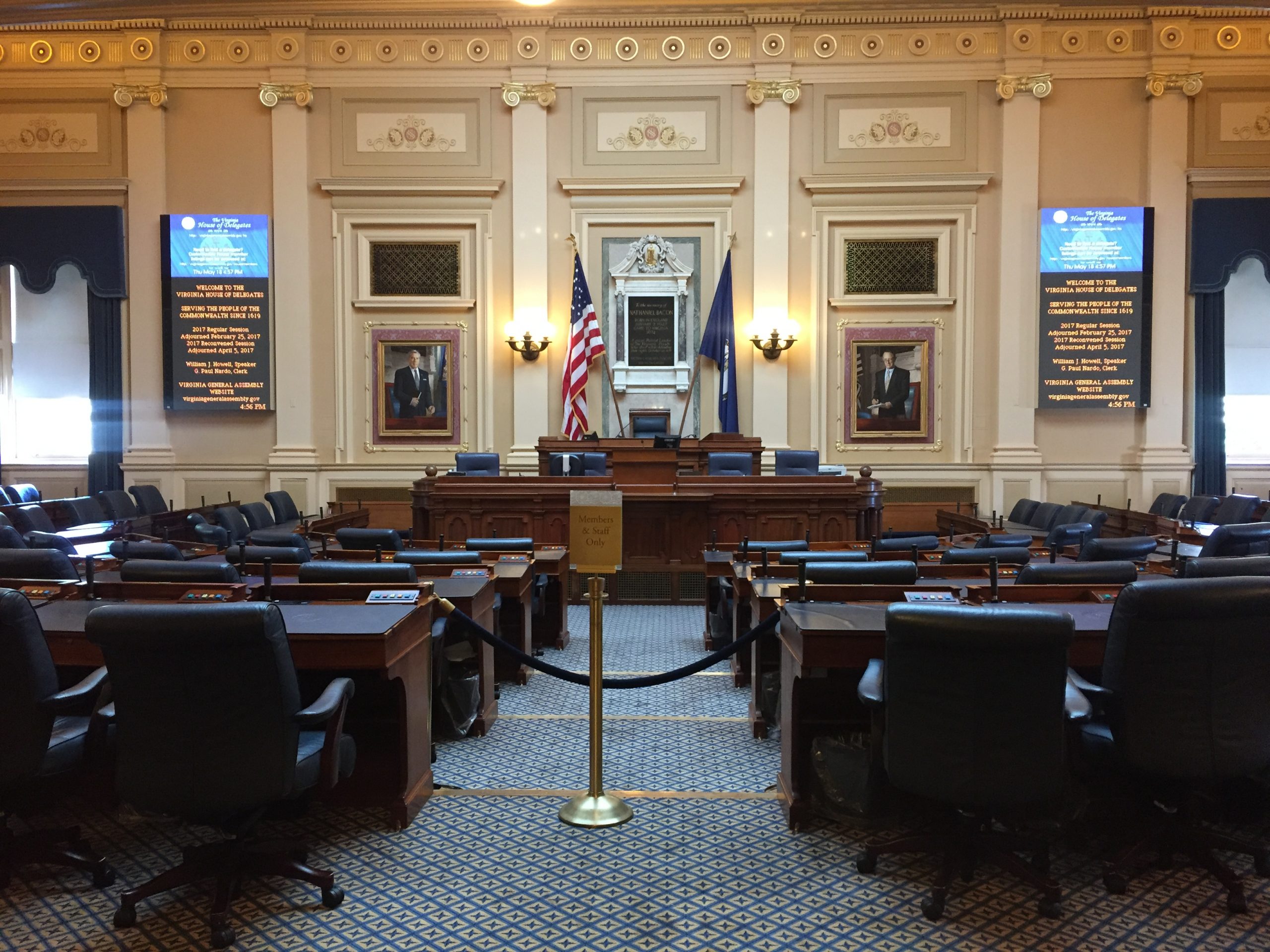The Virginia State Legislature gave final approval to three constitutional amendments, advancing them for approval by the legislature during its 2026 session. If the amendments are approved by the legislature in 2026, they will appear on the Nov. 2026 ballot.
In Virginia, for a constitutional amendment to qualify for the ballot, it must pass the General Assembly in two successive legislative sessions.
The constitutional amendments would create a right to reproductive freedom, including abortion; repeal a constitutional provision stating that marriage is only between one man and one woman; and provide for voting rights restoration for persons convicted of felonies after release from incarceration.
The amendments' placement on the 2026 ballot may depend on a Democratic majority in the state legislature following the state legislature elections later this year.
Virginia currently has a Democratic majority in both the House of Delegates and the State Senate. The State Senate has had a Democratic majority since 2020. Control of the House of Delegates has alternated between parties since 2020. Democrats controlled the chamber from 2020 to 2021, Republicans controlled the chamber from 2022 to 2023, and Democrats regained control in 2024. The House of Delegates currently has a 51-49 Democratic majority, while the State Senate has a 21-19 Democratic majority.
All 100 seats in the House of Delegates will be on the ballot this November. If Democrats lose their majority, it could affect whether the three proposed constitutional amendments make it onto the ballot.
The right to reproductive freedom amendment was introduced in the House as HJR 1 and in the State Senate as SJR 247. The amendment would amend the constitution to establish a right to reproductive freedom, which would be defined to include abortion. HJR 1 passed the House in a vote of 51-48 and the Senate in a vote of 21-18 with all Democrats in favor and all Republicans opposed. SJR 247 passed the Senate in a vote of 21-19 and the House in a vote of 51-46 with all Democrats in favor and all Republicans opposed.
On Nov. 5, 2024, voters in 10 states decided on 11 abortion-related ballot measures—the most on record for a single year, surpassing the record set by 2022, when six abortion measures were decided by voters.
Another amendment would repeal the constitutional provision stating that marriage is only between one man and one woman. The amendment was introduced as HJR 9 in the House and SJR 249 in the Senate. HJR 9 passed the House on Jan. 14, 2025, by a 58-35 vote, with 51 Democrats and 7 Republicans in favor and 35 Republicans opposed. The Senate passed both versions of the amendment with 21 Democrats and 3 Republicans in favor and 15 Republicans opposed.
In 2024, voters in California, Colorado, and Hawaii approved amendments repealing constitutional provisions stating that marriage shall be between one man and one woman.
The amendment to provide voting rights restoration for individuals convicted of felonies following their release from incarceration was introduced in the House as HJR 2 and in the Senate as SJR 248. HJR 2 passed the House on Jan. 14, 2025, by a vote of 55-44, with support from 51 Democrats and 4 Republicans, while 44 Republicans opposed it. SJR 248 passed the House in a vote of 55-42 with 51 Democrats and 4 Republicans in favor and 42 Republicans opposed. Both versions passed the Senate with all 21 Democrats in favor and 18 Republicans against.
The last time a state voted on a similar measure was in 2018 when Florida voters approved Amendment 4, which was designed to automatically restore the right to vote for people with prior felony convictions, except those convicted of murder or a felony sexual offense, upon completion of their sentences, including prison, parole, and probation.
Virginia is one of nine states with a two-session requirement. In eight other states—Indiana, Iowa, Massachusetts, Nevada, New York, Tennessee, Vermont, and Wisconsin—state legislatures are required to pass a constitutional amendment over two successive legislative sessions to refer the amendment to the ballot.
Changes in legislative party control have often affected constitutional amendments requiring approval in two sessions. Between the 2010 and 2024 legislative sessions, 131 constitutional amendments were approved during one legislative session in the states with two-session vote requirements. However, 46 of these constitutional amendments (35.1%) failed during the second legislative session. From 2010 to 2024, when there was a change in party control of the legislature between legislative sessions, 81% (17 of 21) of the constitutional amendments approved during the first session failed, and 19% (4 of 21) passed during the second session.
In 2021, the Democratic-controlled legislature passed amendments on same-sex marriage and voting rights for felons. However, when Republicans gained control of the House in 2022, the House Privileges and Elections Subcommittee voted against the amendments, stopping them from advancing to the full chamber and preventing them from appearing on the ballot.
Additional reading:


